European Platform for Digital Humanism
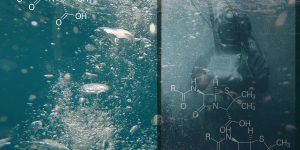
Meet the S+T+ARTS Community: Art & Science Collaborations
Ingeborg Reichle (AT), Michael Sauer (AT), Robertina Šebjanič (SI), Gjino Šutić (HR)
When artists, scientists and scientific research institutions join forces on collaborative projects, the collision of methods often leads to new and exciting perspectives for both the artistic and scientific practice.
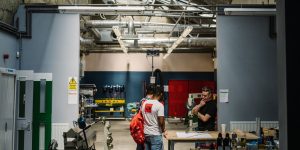
UrbanM
STEAMHouse, Birmingham City University (UK)
Urban M is an Interreg Europe project led by Birmingham City University, its aim is to support nine European Cities to develop their city and regional innovation policies to help local makerspaces thrive.
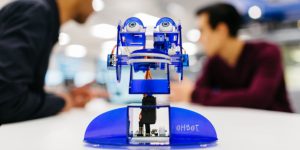
The STEAMhouse Approach
STEAMhouse, Birmingham City University (UK)
STEAMhouse is a centre for innovation, creative thinking, prototyping and business development. STEAMhouse supports entrepreneurs, sole traders, companies and citizens to build their businesses, develop products and services and bring new ideas to life. The centre supports both city and business challenges and takes an interdisciplinary approach to these issues. STEAMhouse is a partnership between Birmingham City University and Eastside Projects and funded by the European Regional Development Fund., It aims to drive innovation and research for major long-term growth across the region.
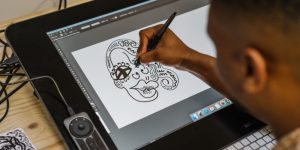
STEAM INC
Ars Electronica (AT), Science Gallery at Trinity College Dublin (IE), Birmingham City University (UK), University of Arts London: Central Saint Martins (UK), Aalto University (FI), Technische Universität Dresden (DE), University of Amsterdam (NE)
Rapid change requires rapid adaptability, and our capacity to adapt is informed by our ability to integrate diverse approaches. To accommodate this, higher education has needed to transcend an historically embedded approach to learning that has seen different types of knowledge segregated across disciplinary silos. Policy ambitions throughout Europe and across the world have recognized that knowledge in science, engineering and mathematics need to be nurtured to engage with rapid advances in technology. However, it has also become increasingly evident that art as a unique and adaptive form of knowledge should also be combined with our approach to STEM education. Art thinking offers a holistic way of understanding complex connections and can act as a translator between different communities of knowledge. By including art, STEAM education ensures that there is an interdisciplinary switchboard operator actively integrating different approaches to solving the same problems we face today.
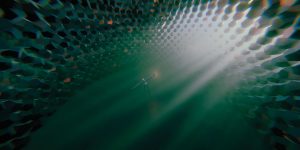
AI x Uncertainty
Jurij Krpan (SL) Speakers: Christl Baur (AT), Suzanne Livingston (UK), Špela Petrič (SL), Stephanie Dinkins (US)
The AIxUncertainty panel focuses on the limitations and uncertainties artists face when developing their work in the frame of AI. What are the challenges for collaboration at the intersection of AI and the arts? What progress can be seen, and where is it failing? What problems do artists face? What frameworks must be created for artists to access their latest research?
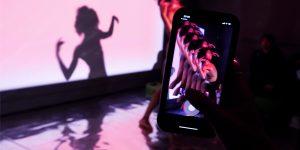
Exhibition: Augmented Empathy
As part of The Living Planet, FACT’s programme focusing on the non-human, the artist collective Keiken have developed a multi-layered participatory project called Augmented Empathy in collaboration with FACT’s Learning team.
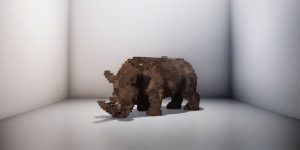
Exhibition: And Say the Animal Responded?
This immersive exhibition brings you face to face with animals from around the world through film, art and creative technology.
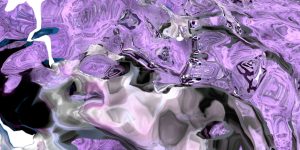
Women in Art, Science and Technology
Marta de Menezes (PT), Dalila Honorato (GR/PT), Ebru Yetiskin (TR), Ionat Zurr (AU), Jo Wei, Kathy High (US), Laura Beloff (FI), María Antonia González Valerio (MX), Victoria Vesna (US)
The panel On Roots and Fruits is a collection of talks from some of the founding members of FEMeeting: Women in Art, Science and Technology on the impact of its conferences and other community activities, and their perspective on the future development of women in art, science and technology. FEMeeting aims to disseminate projects carried out by individuals who identify as women to contribute to (a) the development of research methodologies in art and science and (b) the development of collaboration strategies that can increase knowledge-sharing and bring communities together.
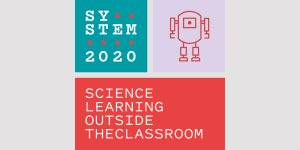
SYSTEM2020 Learner's Perspectives
Discover how learners involvement with out of school science education has allowed them to expand their knowledge and adapt with the changing world around them.
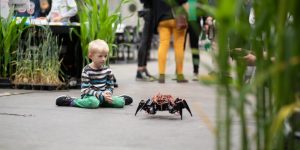
OSHub.Network
Ars Electronica (AT), Science Gallery at Trinity College Dublin (IE), Impact Hub Siracusa (IT), La Casemate (FR), Onl'Fait (CH), SCIENCE IN (CZ), Município de Figueira de Castelo Rodrigo (PO), SciCo (GR)
The pace of change in society - from technological innovation to global interconnectedness - is rapidly increasing and has fundamentally altered the way people live, work and learn. Moreover, the societal challenges of the 21st century bring with them an urgent need to integrate the knowledge and expertise of different societal actors, and to develop meaningful and inclusive ways of connecting schools, universities, enterprises, civil society, governments and local communities using more innovative, efficient and open methodologies.

The Women in Media Art: Telematic Performance
Ximena Alarcón (UK/CO), Anat Ben David (UK/IL), Alex Murray-Lesley (ES/NO/AU), Tina Frank (AT), Claudia Schnugg (AT)
This panel will investigate approaches in telematic collaborative art production and telematic art reception through the voices of four artists and researchers experienced in the cutting/edge production of telematic performances and collaborative music production.

Women in Media Arts
Ars Electronica (AT)
In 2016, Ars Electronica launched one of the largest online databases for women in media arts. This database, first dedicated to the women pioneers of Ars Electronica, was then opened to all female artists working with digital means as a tool for artistic expression. A whole program focus was thus established and will be presented this year in two panels.

SYSTEM2020 Map
Science learning initiatives outside the classroom are crucial in educating and forming Europe’s next generation of researchers and innovators. By gaining insights into these initiatives all around Europe SySTEM 2020 wants to gain a better understanding of the types and kinds of programmes in operation, learn from each other and collaborate to be able to respond to challenges ahead. The SySTEM 2020 map is an online visualisation tool where over 2000 STEAM initiatives or projects are mapped providing a network of organisations for you to connect with. For the general public it offers a way to find informal learning initiatives in their area. For organisations it offers the opportunity to get connected and gain visibility as a collective community within Europe.
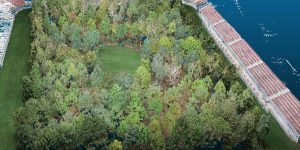
AI x Ecology
Carla Gomes (US/PT), Tega Brain (AU), Mark Coeckelbergh (BE), Lynn Kaack (DE), Stafano Nativi (IT), Claire Monteleoni (US), Martina Mara (AT)
The panel on AIxEcology will focus on the importance of computer-controlled systems for ecology and the environment. Artificial intelligence can be used to save water, stop species loss or detect plants in the field. By optimizing the monitoring of ecosystems, a significant contribution can be made to reduce the risk of climate change and counteract it, as more and more projects try to fight it through data and artificial intelligence.
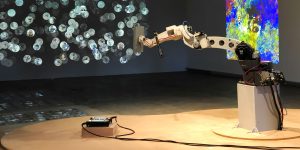
The New Real: Experiental AI and the AI Lab
Jake Elwes (UK), Drew Hemment (UK), Caroline Sinders (US), Anna Ridler (UK), Mahir Yavuz (TR)
The New Real explores the boundary between the real and the artificial as we attempt to emerge into and understand the so-called New Normal. Individual and collective resilience is predicated on the wider use of networked, online tools and environments by the majority of the population in a huge diversity of professional, domestic and leisure settings. At the same time, the crisis is unfolding in a context in which trust in data-driven online content and interaction are being challenged like never before.
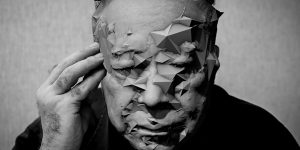
AI x Humanity
Rasha Abdul-Rahim, Adam Harvey (US/DE), Nye Thomson (UK), Milena Marin (RO), Victoria Vesna (US)
A series of panel discussions will be presented as part of the European ARTificial Intelligence Lab this year. Every evening, there will be one panel dedicated to a different topic, aiming to elucidate and educate about the impact of AI on society. The panels will bring AI related scientific, technological and artistic experts together in order to contribute to a critical and reflective debate beyond the technological and economic horizon of artificial intelligence.

AI x Art & Society
A series of panel discussions will be presented as part of the European ARTificial Intelligence Lab this year. Every evening, there will be one panel dedicated to a different topic, aiming to elucidate and educate about the impact of AI on society. The panels will bring AI related scientific, technological and artistic experts together in order to contribute to a critical and reflective debate beyond the technological and economic horizon of artificial intelligence.
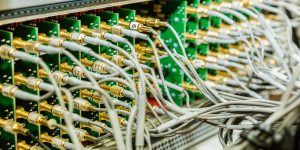
Ars Electronica AIxMusic Online Hackathon: Final Presentations
Annelies Termeer (NL) moderator + Participants
For the occasion of the first online Festival, Ars Electronica will host its first international AIxMusic Hackathon as part of the AIxMusic Festival 2020.
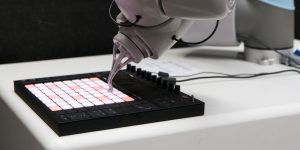
AIxMusic - Artificial Stupidity
Moisés Horta-Valenzuela (MX/US), Artemi-Maria Gioti (GR), Ali Nikrang (AT), Alex Braga (IT) and Portrait XO (US)
The panel on Artificial Stupidity invites artist present at the Ars Electronica Festival to share their experiences in the context of AIxMusic. AI is a media trend right now and a controversial topic.
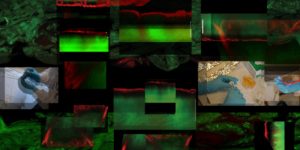
Demystifying Arts and Sciences through Playful Creative Technologies
Jo Berry (UK)
Jo Berry has implemented playful, creative methodologies to seek art's value, purpose and interpretational impact when it takes as its start point advanced imaging and microscopy. Her claim is that art can be a significant contributing factor to new directives in advanced imaging and microscopy; its impact intensified through applying play as a method to interrogate ideas, processes and outcomes. She offers a new model of research, which engages play as the critical driver to accomplish a more agile, accessible and open method of examining science via a different set of criteria. This hypothesis is based on my own prior experience as a researcher working directly with scientists and experiencing scientific method where I became convinced that artists should be central to scientific inquiry not just working on the periphery. As it would seem there needs to be a paradigm shift within science which, she claims, can be activated through examining play through art and identifying its effect on aspects of culture, creativity and aesthetics.


